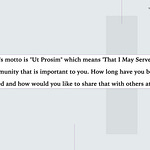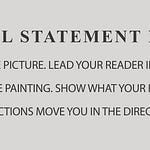Parents often come to me and say, “My student is a really good writer.”
Students often come to me and say, “I’m not a very good writer.”
My answer to both is the same:
It doesn’t matter! It’s academic writing!
Academic writing is a technical skill.
Technical skills are the specialized ability to perform a task using specific tools, techniques, or knowledge, often learned through training or education.
As a technical skill, academic writing’s purpose is to present arguments, discuss research findings, and contribute to scholarly discourse in the form of research papers, theses, dissertations, journal articles, and essays.
The acquisition and development of technical skills generally follow a process, often described in stages or phases. In this case, we use the Steps in the Writing RIGHTING Process:
In addition to the steps, we use the alliteration of Communicate. Navigate. Punctuate.® to help students remember the three most important components of writing: content, organization, and mechanics.
Q: Why throw in the Pareto Principle?
A: In my experience, students will open a document and stare at the blank page for upwards of 10-30 minutes, unsure where to begin. College freshmen can expect to write an average of 92 pages of essays; even on the low end, that’s a lot of unpaid hours with no return on investment. The Pareto Principle, A.K.A. The 80/20 Rule, helps students to maximize their results with minimal effort.
Developing a technical skill is not a one-and-done exercise, but rather an ongoing pursuit of learning, practicing, receiving feedback, reflecting, and applying knowledge to solve problems. It’s not enough to watch the attached video and say, voilà, I got this; students (especially the students who are comfortable with writing) may feel pushed out of their comfort zone. Other students (especially those who don’t typically describe themselves as someone who writes things for fun) will be super relieved to be handed a formula.
We’re building a bridge between High School AP English Lit and Rhetoric 101, and we’re starting with the college application essay, because college! What if you get in? 😜
Coding, data analysis, and operating machinery are all examples of technical skills.
The people who deploy these technical skills aren’t born with these innate abilities.
Students rarely come to me and say, “I’m not a good pilot.” Either they’ve learned how to operate aircraft, or they haven’t, but they don’t consider themselves “bad at flying” if they haven’t even tried to learn it. Same with coding.
The thing about academic writing is that students don’t really do a deep-dive into speech, communications, and rhetoric until college — but first, they have to get in!
pilots study and train for years to move the flying public around the world in jumbo jets. Technical skills are learned.
, and photographers don’t wake up one morning with innate talents to expose images on manual mode with a 1948 Hasselblad 1600F.












